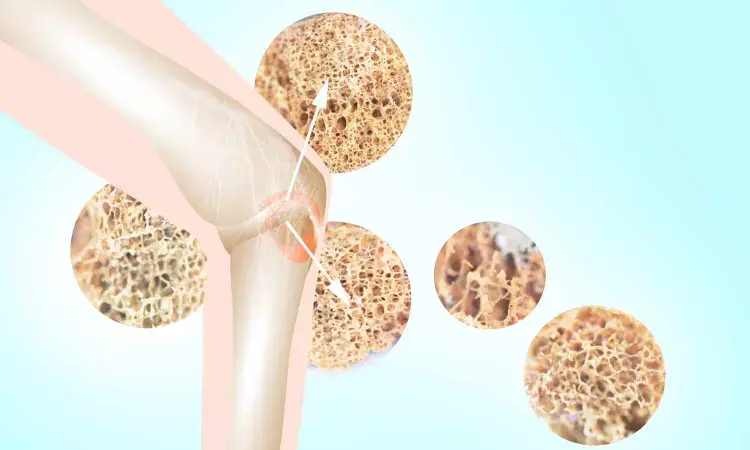- Home
- Medical news & Guidelines
- Anesthesiology
- Cardiology and CTVS
- Critical Care
- Dentistry
- Dermatology
- Diabetes and Endocrinology
- ENT
- Gastroenterology
- Medicine
- Nephrology
- Neurology
- Obstretics-Gynaecology
- Oncology
- Ophthalmology
- Orthopaedics
- Pediatrics-Neonatology
- Psychiatry
- Pulmonology
- Radiology
- Surgery
- Urology
- Laboratory Medicine
- Diet
- Nursing
- Paramedical
- Physiotherapy
- Health news
- Fact Check
- Bone Health Fact Check
- Brain Health Fact Check
- Cancer Related Fact Check
- Child Care Fact Check
- Dental and oral health fact check
- Diabetes and metabolic health fact check
- Diet and Nutrition Fact Check
- Eye and ENT Care Fact Check
- Fitness fact check
- Gut health fact check
- Heart health fact check
- Kidney health fact check
- Medical education fact check
- Men's health fact check
- Respiratory fact check
- Skin and hair care fact check
- Vaccine and Immunization fact check
- Women's health fact check
- AYUSH
- State News
- Andaman and Nicobar Islands
- Andhra Pradesh
- Arunachal Pradesh
- Assam
- Bihar
- Chandigarh
- Chattisgarh
- Dadra and Nagar Haveli
- Daman and Diu
- Delhi
- Goa
- Gujarat
- Haryana
- Himachal Pradesh
- Jammu & Kashmir
- Jharkhand
- Karnataka
- Kerala
- Ladakh
- Lakshadweep
- Madhya Pradesh
- Maharashtra
- Manipur
- Meghalaya
- Mizoram
- Nagaland
- Odisha
- Puducherry
- Punjab
- Rajasthan
- Sikkim
- Tamil Nadu
- Telangana
- Tripura
- Uttar Pradesh
- Uttrakhand
- West Bengal
- Medical Education
- Industry
Obesity and type 2 diabetes in teen years can impair bone health: Study

Obesity and type 2 diabetes in adolescence can interfere with bone development, potentially increasing the risk of fractures and osteoporosis later in life, according to a study being presented Monday at ENDO 2025, the Endocrine Society’s annual meeting in San Francisco, Calif.
The teen years are the most critical for building lifelong bone strength, according to lead researcher Fida Bacha, M.D., of Baylor College of Medicine in Houston, Texas. “While adults with type 2 diabetes are known to have increased risk of fractures, this has not been investigated in youth with type 2 diabetes,” Bacha said. “We wanted to understand how childhood obesity and early type 2 diabetes affect bone health as children grow.”
The researchers followed 48 teenagers for a year, including 26 girls, with an average age of 15.5 years. Of these, 27% had normal weight, 31% were classified overweight with normal blood sugar, and 42% had overweight with impaired blood sugar control, including prediabetes (4 teens) or type 2 diabetes (16 teens).
The researchers measured the teens’ body fat, fitness, blood sugar and insulin levels. Their bone structure and strength in the lower leg (tibia) and forearm (radius) was measured using high-resolution imaging.
The study found that teens with obesity, and especially those with type 2 diabetes, showed less improvement in bone strength and quality over time compared to their peers who were of normal weight. This was true for both the leg and arm bones. Higher insulin levels (a sign of insulin resistance) seemed to contribute to less increase in bone strength. Insulin resistance is a condition where the body’s cells do not respond effectively to insulin, leading to elevated blood sugar levels and increasing the risk of type 2 diabetes.
“Obesity and early type 2 diabetes in adolescence don’t just affect weight or blood sugar-they can quietly interfere with bone development during the most critical years for building lifelong bone strength,” Bacha said. “That means teens with these health issues may face a greater risk of fractures and osteoporosis as they get older.”
Reference:
Obesity and type 2 diabetes in teen years can impair bone health, The Endocrine Society, Meeting: ENDO 2025
Dr Kamal Kant Kohli-MBBS, DTCD- a chest specialist with more than 30 years of practice and a flair for writing clinical articles, Dr Kamal Kant Kohli joined Medical Dialogues as a Chief Editor of Medical News. Besides writing articles, as an editor, he proofreads and verifies all the medical content published on Medical Dialogues including those coming from journals, studies,medical conferences,guidelines etc. Email: drkohli@medicaldialogues.in. Contact no. 011-43720751


